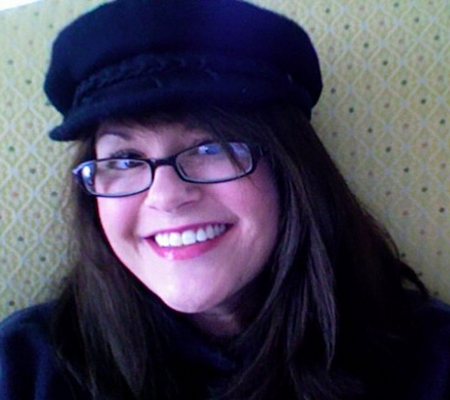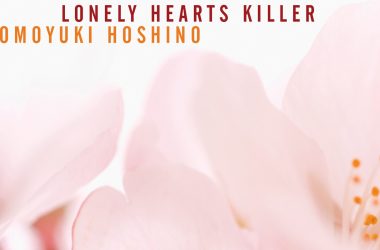If you click here, you can read the original Japanese essay by Hoshino that appeared in the Tokyo Newspaper on April 3, 2006. The following is Jodie Beck’s translation of that essay. Jodie Beck is a Ph.D. student in East Asian Studies at McGill University. Ms. Beck is specializing in contemporary Japanese fiction, and her research interests include globalization, neoliberalism, nationalism, and gender studies.
For readers (like me) who don’t follow baseball, Ichirô Suzuki is a famous and popular player from Japan who currently is an outfielder for the Seattle Mariners, a Major League baseball team in the United States. For readers unfamiliar with the Yasukuni Shrine controversy, please check out this essay for a brief introduction.
Discrimination?
WBC Entangled with Nationalism
by Tomoyuki Hoshino

translated by Jodie Beck
Taking a sidelong glance at all of Japan’s excitement on the day Japan
won the World Baseball Classic (WBC), I felt gloomy. It wasn’t just that
the WBC was run by the USA’s warped administration, but rather because I
couldn’t help being troubled by Ichiro’s remarks and the way people
reacted to them.
I also have always had the greatest awe and
respect for Ichiro’s talent and achievements. But it is because he is
such a huge presence that his remarks exert influence in both positive
and negative ways beyond his own intentions. What I question is the
reaction of Japanese society to Ichiro’s remarks.
What bothered
me in particular was, after suffering successive defeats to Korea in the
second round, Ichiro’s comment that “Today is the most humiliating day
in my life of baseball”. The word “humiliation” does not only express
one’s inner feelings of rival-consciousness or regret, it also includes a
sense of resentment that one has suffered an unjust insult from an
opponent. I can’t help but feel the nuance of looking down on the other
side. Lets say that you were promoted faster to the position of
subsection chief or section chief than a close colleague who started
working at the company at the same time as you. If that employee said,
“That is the biggest humiliation”, wouldn’t you feel that he or she was
looking down on you? Of course I also thought that, by putting the
Korean flag on the mound as though they were American astronauts landing
on the moon, the behavior of the Korean players was “unseemly”, but I
did not think it was “humiliating”.
After that, when it was
decided that Japan would play against Korea a third time, Ichiro stated
that “it would be unforgivable for Japan to lose three times to the same
opponent.” Then I thought, that tone of always wanting to fight reminds
me of someone, and I realized that that was the way that Prime Minister
Jun -“ichiro” Koizumi talked at interviews last summer when the postal
privatization bill was rejected and he dissolved the House of
Representatives.
Yes, the two of them resemble each other. With
their fists and emotions bared, they work themselves up, create an
imaginary enemy, and then sing their own praises after they have won.
Right down until after winning the championship, the only thing that
came out of Ichiro’s mouth was praise for how wonderful the Japanese
players and Japanese baseball are. The two of them are also identical
with regards to their lack of sensitivity in not making any effort to
imagine the feelings of our neighbor, Korea.
But what I felt to
be the strangest thing was that so many Japanese people also seem to
possess that same lack of sensitivity. Even more odd is the fact that
Ichiro’s remark about “humiliation”, which is discriminatory no matter
how you interpret it, did not stir up a lot of fuss in Japan, starting
with the mass media for one. I even think that it boils down to this;
maybe nobody thought to question it because a lot of Japanese people
have the same kind of discriminatory feelings lurking inside of
themselves.
That’s just my opinion, but with the issue of the
prime minister’s visit to Yasukuni Shrine getting messier and messier,
feelings of repugnance toward Korea among Japanese people are probably
getting stronger. And isn’t it true that Ichiro’s remarks at the WBC
match perfectly with this trend? To put it in an extreme way, it even
looks to me like Ichiro’s remarks, as a threat to Korea’s meddling in
the domestic matter of the visit to Yasukuni Shrine, got the endorsement
of Japanese audiences.
Regarding the Prime Minister’s Yasukuni
Shrine visit, many opinion polls show an almost even split between those
for and against. Yet the number of people who actually go to Yasukuni
Shrine themselves is very small. Before Prime Minister Koizumi started
going and it became an issue, how many of those people who agree with
the prime minister’s visit would have been thinking, “Why doesn’t the
prime minister go to Yasukuni Shrine?”
To me, it just looks like
public opinion is creating an imaginary enemy. I even get the feeling
that it’s just a kind of nastiness, like the Yasukuni Shrine itself is
not actually important, but because Korea and China will complain about
it, let’s really show them and go! Doesn’t that include a desire to
offend, wanting to build oneself up by looking down on another?
I
felt a dark shadow on what should have been the development and victory
of a good game at the WBC, because it was an event where this kind of
latent desire to offend within Japan plainly started to show itself.
Until now in other international sports events, particularly in the
Olympics or World Cup Soccer, I haven’t really seen nationalism that
increases motivation and enthusiasm by discriminating against another as
blatantly as this. I’m thoroughly discouraged that this has been
questioned by so few, and that even within the newspapers there was no
debate regarding discrimination.
Tokyo Shimbun April 3, 2006 evening edition
If you are curious as to how this op ed was received and can read English and Japanese, please click here, where you can, for example, access an article entitled “Anti-Japanese Writer Tomoyuki Hoshino’s Controversial Remarks” and other responses.
Back to Tomoyuki Hoshino’s Author Page | Back to Adrienne Carey Hurley’s Author Page



